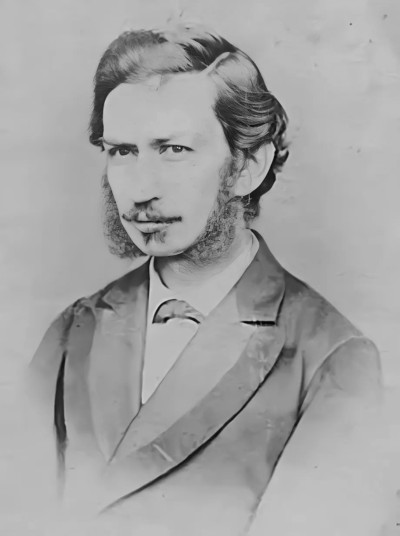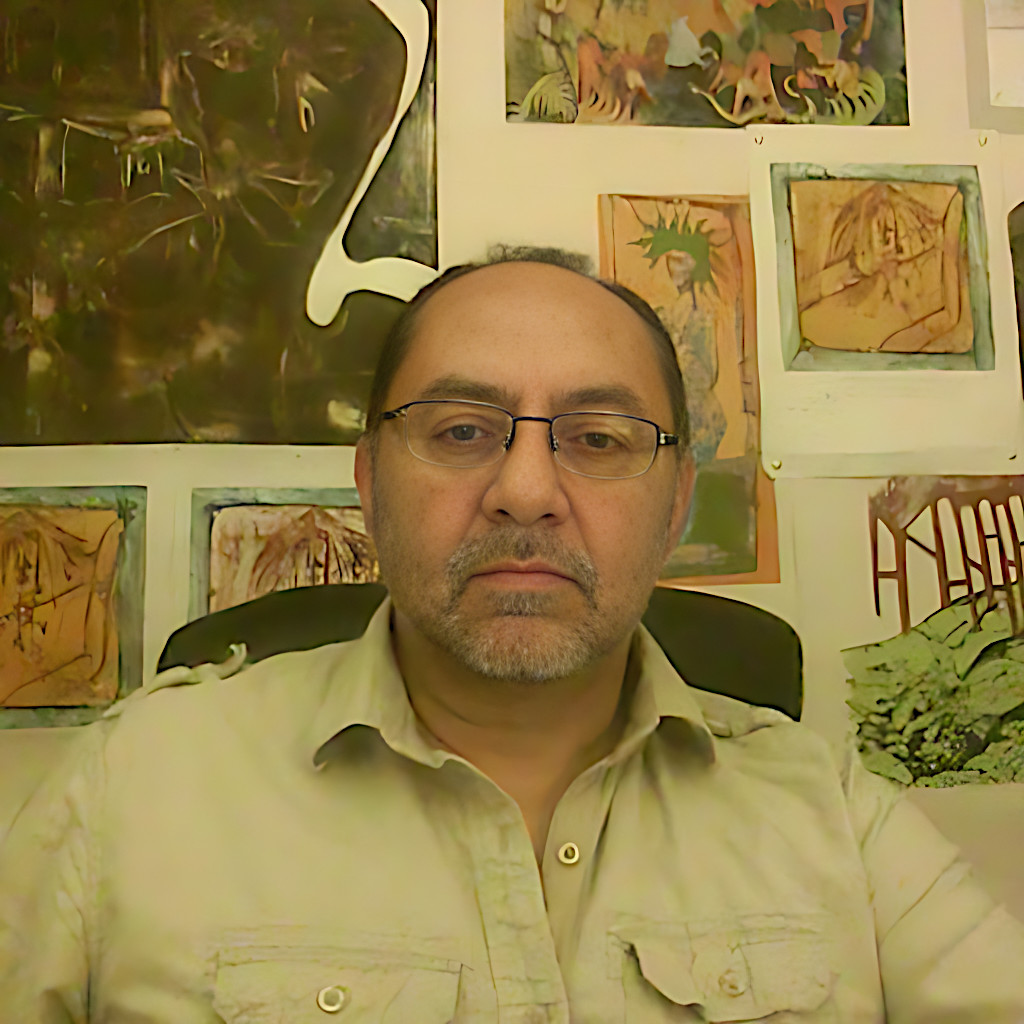Juan León Mera Martínez (Ambato, June 28, 1832 – Ambato, December 13, 1894) was an Ecuadorian poet, novelist, essayist, politician and painter. In 1865 he penned the lyrics for Ecuador’s National Anthem “¡Salve, Oh Patria!” and in 1879 he wrote the novel “Cumandá” which is regarded as Ecuador’s first full-length novel. The novel’s complex characters, lyrical prose, and riveting plot, set against the backdrop of the Amazonian jungle, have made it a revered classic that continues to captivate readers to this day. Juan León Mera was a member of the Ecuadorian Academy of Language, and a corresponding member of the Royal Spanish Academy of Language.
Biography
Juan León Mera was born in Ambato on June 28, 1832, to Pedro Antonio Mera Gómez and Josefa Martínez Vásconez. His father was a businessman, but his mother, who raised him alone, played a crucial role in his upbringing. Mera’s early years were modest, spent in the countryside property called “Los Molinos” in Ambato. His maternal grandmother rented the property to her brother, Pablo Vásconez, who was a political activist. Mera received his education at home, primarily from his great-uncle and his uncle, Nicolás Martínez, who was a doctor. At the age of twenty, he traveled to Quito to study painting under the renowned artist Antonio Salas, where he honed his skills in oil and watercolor. In 1865, Mera penned the lyrics for the Ecuadorian National Hymn, “Salve, Oh Patria,” at the age of 33. Mera’s son, José Trajano Mera (1862–1919), followed in his father’s footsteps and became a poet, playwright, and diplomat.
Writing Career
Mera began his writing career in 1854 when he published his first verses of poetry in the newspaper La Democracia, with the assistance of writer Miguel Riofrío. In 1874, he founded the Ecuadorian Academy of Language and became a member of the Real Academia Española. Mera is regarded as one of the precursors of Ecuadorian literature, primarily due to his renowned national novel, “Cumandá.” This novel, published in 1879 in Quito and later in Madrid in 1891, depicts the complex racial and social dynamics of Ecuador following independence. The novel’s compelling characters, lyrical prose, and captivating plot set in the Amazonian jungle have solidified its status as a revered classic. Furthermore, “Cumandá” served as inspiration for several operas written by Ecuadorian dramatists in the 20th century, including Luis H. Salgado, Pedro Pablo Traversari Salazar, and Sixto María Durán Cárdenas.
Political career
In addition to his literary and artistic pursuits, Juan León Mera had a notable political career. He aligned himself with the conservative ideology and became a follower of Gabriel García Moreno. Mera held various political positions, serving as the governor of Cotopaxi, Secretary of the Council of State, Senator, and President of the Senate and National Congress in 1886.
Former residence turned into museum
Juan León Mera’s former residence, known as the museum “La quinta de Juan León Mera” in Ambato, showcases his possessions and serves as a testament to his political legacy.
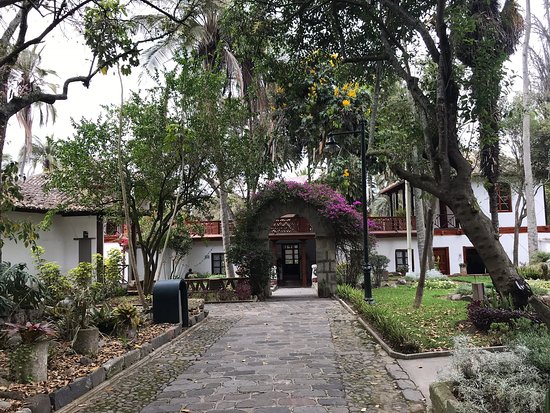
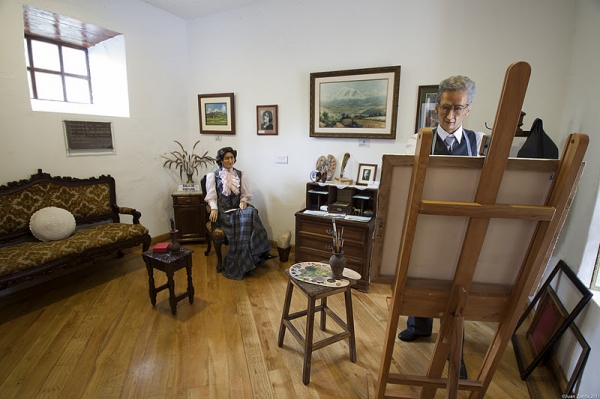
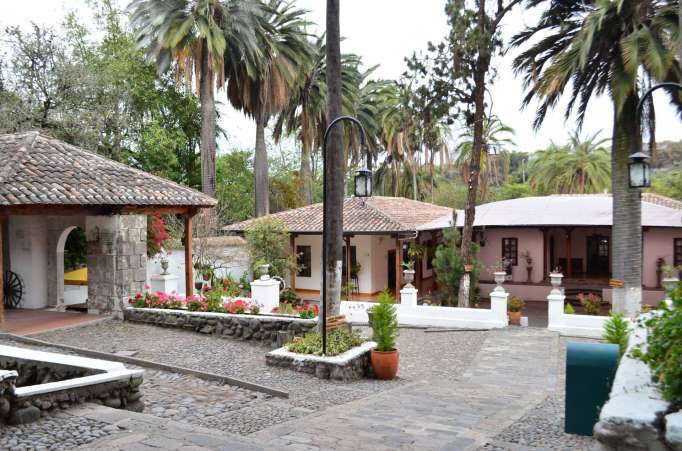
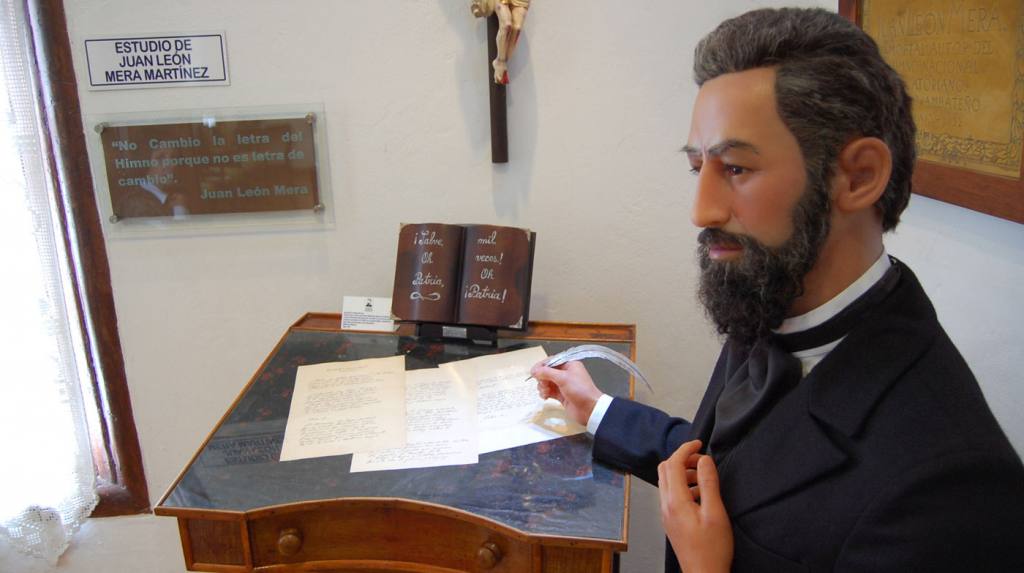
Legacy and Impact
Juan León Mera’s contributions to Ecuadorian literature, art, and politics have left an enduring legacy. As the author of Ecuador’s National Anthem, his words continue to resonate with Ecuadorians, instilling a sense of pride and unity. His novel “Cumandá” remains a significant literary work, recognized for its exploration of cultural complexities and its representation of the Ecuadorian landscape. Mera’s dedication to promoting Ecuadorian literature and his involvement in establishing literary institutions, such as the Ecuadorian Academy of Language, have nurtured the growth of national literature and fostered a sense of cultural identity.
Cumandá, or A Drama Among Savages
The novel “Cumandá” holds immense importance in Ecuadorian literature and cultural history. Written by Juan León Mera and published in 1879, it is widely regarded as Ecuador’s first full-length novel. “Cumandá” stands as a significant literary work that explores profound themes, vividly portrays the Amazonian jungle, and addresses complex social and racial dynamics, making it a cornerstone of Ecuadorian literature.
One of the notable aspects of “Cumandá” is its portrayal of the intricate relationships between different racial and social groups in post-independence Ecuador. Mera delves into the collision between indigenous cultures and European colonizers, depicting the struggles, conflicts, and tensions that arise as a result. Through his nuanced characters, Mera highlights the complexity of these interactions, inviting readers to contemplate the impact of colonization and the clash of cultures in the context of Ecuador’s history.
Moreover, “Cumandá” captures the essence of the Amazonian jungle, transporting readers to a world of lush vegetation, exotic wildlife, and the mystique of an untamed environment. Mera’s vivid descriptions evoke a sense of place, immersing readers in the natural beauty and wildness of the Amazon rainforest. The setting becomes a character in its own right, reflecting the untamed and unpredictable nature of the story.
The novel also explores themes of love, sacrifice, and the struggle between civilization and nature. Mera weaves a tale of forbidden love between Cumandá, a young indigenous woman, and Carlos, a Spanish nobleman. Their love is entangled in societal and cultural barriers, creating a poignant narrative that reflects the complexities of human emotions and the consequences of societal norms.
“Cumandá” has had a lasting impact on Ecuadorian literature, solidifying Mera’s place as one of the country’s most celebrated writers. It served as a pioneering work of Latin American literature, paving the way for future generations of authors to explore themes of cultural identity, social inequality, and the relationship between humans and their environment. The novel’s portrayal of indigenous characters and its exploration of indigenous cultures also contributed to the development of indigenous literature and cultural representation in Ecuador.
Furthermore, “Cumandá” has been adapted into other art forms, including opera and film, expanding its reach and exposing a wider audience to Mera’s compelling narrative. These adaptations further emphasize the enduring significance and appeal of the novel.
A Letter of Gratitude and Literary Offering to the Royal Spanish Academy
The following letter, penned by Juan León Mera, is a heartfelt expression of gratitude and a testament to his deep reverence for the Royal Spanish Academy. Written in 1877, Mera, who had been appointed as a corresponding member of the Academy, shares his astonishment at the honor bestowed upon him. While acknowledging the imperfections of his literary works, he explains his decision to present a separate piece, “Cumandá,” as a token of appreciation. Mera’s letter showcases his humility, passion for exploration, and desire to contribute to the literary heritage of his homeland.
Sir,
I am humbled and honored by my appointment as a corresponding member of your esteemed and wise Corporation. I must confess that my humble literary works have never filled me with pride to the extent of considering myself worthy of an academic diploma. They are merely the products of my natural inclination, nurtured through my private studies. While they serve as a testament to the value of embracing the gifts bestowed upon us by nature, they cannot serve as a foundation for a title that should rightfully be bestowed upon accomplished literary figures.
However, despite my surprise at this appointment, I did not have the courage to decline it. Alongside the weighty responsibilities it entails, I felt compelled to express my deep and enduring gratitude to your distinguished institution by presenting a work that, while independent of academic pursuits, would serve as a special token of appreciation.
In pondering how to fulfill this pledge, I turned to a legend that had long lingered in my mind. I saw in it something new, poetic, and intriguing. I revived memories of the enchanting landscapes of the virgin jungles in the eastern regions of our Republic. I gathered recollections of the customs of the wandering tribes that inhabit those lands. I delved into the traditions of a time when these territories belonged to Spain. It was within this context that I penned “Cumandá,” the name of a heroine from those desolate regions. This name had been repeated to me numerous times by an enlightened English traveler, a friend of mine, who shared with me a moving anecdote. He was, in part, an eyewitness to the events that form the basis of the narrative.
I am well aware that illustrious writers such as Chateaubriand and Cooper have set their novels amidst savage hordes and the depths of American jungles, capturing their essence with unmatched skill. However, I believe there is a significant distinction between the regions washed by the Mississippi in the north and those in the south, where the Amazon reigns supreme. Likewise, the customs of the indigenous peoples who inhabit these regions differ greatly. Therefore, a work that explores the Jíbaros must differ from one written within the confines of the Nátchez cabin. While my own work may not achieve a pinnacle of perfection, I trust it will be appreciated by readers seeking the allure of the new and the unknown. Our eastern regions deserve the label of “virgin,” as their nature has yet to be thoroughly studied by industry and science, their poetry remains unsung, and their life and customs have not been dissected by philosophy. The Jíbaros, Záparos, and other indigenous and barbaric tribes that flourish there are disconnected from civilized society.
“Cumandá” represents a modest endeavor, eclipsed by the pens of more skilled writers. Nevertheless, I place this little work in your hands, hoping that it will be presented to the Royal Academy through your esteemed channels. May it find favor and benevolence in your esteemed institution, perhaps as a peculiar flower discovered in the depths of unknown jungles. May it, by virtue of its peculiarity, find a place among the invaluable literary blossoms of our homeland.
I remain, Sir, your attentive and devoted servant, with the utmost respect.
Ambato, March 10, 1877
Juan León Mera
English Translation of Cumandá
Juan León Mera’s novel “Cumandá” was translated in 2007 by Noé O. Vaca as “Cumanda: The Novel of the Ecuadorian Jungle.”
Cumandá vs. La Emancipada, which truly is Ecuador’s First Novel?
Some scholars argue that La Emancipada (1863) by Miguel Riofrío is truly Ecuador’s first novel (it preceded Cumandá by 16 years). However, defenders of Cumandá argue that Riofrío’s work, which was published in installments in 1863, is not a novel at all but a novelette (due to its length; it usually runs less than 100 pages in print). Despite today’s controversy over who wrote Ecuador’s first novel, in their lifetime Juan León Mera and Miguel Riofrío were good friends. In fact, in 1854 Juan León Mera first published some of his verses in the periodical La Democracia with the help of Miguel Riofrío.
Cumandá the Film (1993, Directed by César Carmigniani)
Ecuador’s National Anthem Lyrics
- Lyrics by Juan León Mera (1865)
- Music by Antonio Neumane (1870)
- Adopted: 1948.
Official Lyrics
| Spanish lyrics | English translation |
|---|---|
| Coro: ¡Salve, Oh Patria, mil veces, oh Patria! ¡Gloria a ti, gloria a ti! Ya tu pecho, tu pecho, rebosa, gozo y paz ya tu pecho rebosa; Y tu frente, tu frente radiosa, Más que el sol contemplamos lucir. 2da Estrofa: Los primeros, los hijos del suelo que, soberbio, el Pichincha decora, te aclamaron por siempre señora y vertieron su sangre por ti. Dios miró y aceptó el holocausto y esa sangre fue germen fecundo de otros héroes que atónito el mundo vió en tu torno a millares surgir. ¡A millares surgir! ¡A millares surgir! Coro | Chorus: We greet you, Oh Fatherland, a thousand times! Oh Fatherland, Glory be to you! Glory be to you! Your breast, your breast, overflows, Your breast overflows with joy and peace; And your radiant face, your radiant face is brighter than the shining sun we see. 2nd Stanza: The first sons of the soil Which Pichincha adorns proudly, They declared you as their sovereign lady forever, And shed their blood for you. God observed and accepted the holocaust, And that blood was the prolific seed Of other heroes whom the world in astonishment Saw rise up around you by the thousands. Rise up by the thousands, rise up by the thousands! Chorus |
Full lyrics
| Spanish lyrics | English translation |
|---|---|
| Coro: ¡Salve, Oh Patria, mil veces! ¡Oh Patria, gloria a ti! Ya tu pecho rebosa gozo y paz, y tu frente radiosa más que el sol contemplamos lucir. I Indignados tus hijos del yugo que te impuso la ibérica audacia, de la injusta y horrenda desgracia que pesaba fatal sobre ti, santa voz a los cielos alzaron, voz de noble y sin par juramento, de vengarte del monstruo sangriento, de romper ese yugo servil. Coro II (verso oficial) Los primeros, los hijos del suelo que, soberbio, el Pichincha decora, te aclamaron por siempre señora y vertieron su sangre por tí. Dios miró y aceptó el holocausto y esa sangre fue germen fecundo de otros héroes que atónito el mundo vió en tu torno a millares surgir. Coro III De estos héroes al brazo del hierro nada tuvo invencible la tierra, y del valle a la altísima sierra se escuchaba el fragor de la lid. Tras la lid, la victoria volaba, libertad tras el triunfo venía, y al león destrozado se oía de impotencia y despecho rugir. Coro IV Cedió al fin la fiereza española, y hoy, oh Patria, tu libre existencia es la noble y magnífica herencia que nos dio el heroísmo feliz. De las manos paternas la hubimos, nadie intente arrancárnosla ahora, ni nuestra ira excitar vengadora quiera, necio o audaz, contra sí. Coro V Nadie, oh Patria, lo intente. Las sombras de tus héroes gloriosos nos miran, y el valor y el orgullo que inspiran son augurios de triunfos por ti. Venga el hierro y el plomo fulmíneo, que a la idea de guerra y venganza se despierta la heroica pujanza que hizo al fiero español sucumbir. Coro VI Y si nuevas cadenas prepara la injusticia de bárbara suerte, ¡gran Pichincha! prevén tú la muerte de la Patria y sus hijos al fin Hunde al punto en tus hondas entrañas cuanto existe en tu tierra, el tirano huelle solo cenizas y en vano busque rastro de ser junto a ti. Coro | Chorus: We greet you, Oh Fatherland, a thousand times! Oh Fatherland, glory to you! Your breast overflows with joy and peace, and your radiant face is brighter than the shining sun we see. I Your children were outraged by the yoke That Iberian audacity imposed on you, By the unjust and horrendous disgrace Fatally weighing upon you. They cried out a holy voice to the heavens, that noble voice of a unbreakable pledge, to defeat that monster of blood, that this servile yoke would disappear. Chorus II (official verse) The first sons of the soil Which Pichincha adorns proudly, They declared you as their sovereign lady forever, And shed their blood for you. God observed and accepted the holocaust, And that blood was the prolific seed Of other heroes whom the world in astonishment Saw rise up around you by the thousands. Chorus III Of those heroes of iron arm No land was invincible, And from the valley to the highest sierra You could hear the roar of the fray. After the fray, Victory would fly, Freedom after the triumph would come, And the Lion was heard broken With a roar of helplessness and despair. Chorus IV At last Spanish ferocity yielded, And now, oh Fatherland, your free existence Is the noble and magnificent heritage Which the felicitous heroism gave us.: It was given to us from our Fathers’ hands, Let no one take it from us now, Nor any daring fool wish to excite Our vengeful anger against himself. Chorus V May no one, oh Fatherland, try it. The shadows of Your glorious heroes watch us, And the valor and pride that they inspire Are omens of victories for you. Come lead and the striking iron, That the idea of war and revenge Wakes the heroic strength That made the fierce Spanish succumb. Chorus VI And if new chains are prepared by The barbaric injustice of fate, Great Pichincha! May you prevent the death Of the country and their children in the end; Sink to the deep point in your gut All that exists on your soil. Let the tyrant Tread only ashes and in vain Look for any trace of being beside you. Chorus |
Works
| Year of Publication | Literary work | |
|---|---|---|
| 1857 | Fantasías | |
| 1857 | Afectos íntimos | |
| 1858 | Melodías indígenas | read it for free here. |
| 1858 | Poesías | read it for free here. |
| 1861 | La virgen del sol | read it for free here. |
| 1865 | Himno Nacional del Ecuador | |
| 1868 | Ojeada histórico-crítica sobre la poesía ecuatoriana | read it for free here. |
| 1872 | Los novios de una aldea ecuatoriana | |
| 1875 | Mazorra | |
| 1876 | El héroe mártir: canto a la memoria de García Moreno [Folleto] | read it for free here. |
| 1879 | Cumandá o un drama entre salvajes | read it for free here. |
| 1883 | Los últimos momentos de Bolívar | |
| 1884 | La dictadura y la restauración de la República del Ecuador | read it for free here. |
| 1886 | La Estatua de Sucre ( Folleto) | read it for free here. |
| 1886 | Los inocentes de Ambato (Folleto) | read it for free here. |
| 1887 | Lira ecuatoriana | |
| 1889 | Entre dos tías y un tío | |
| 1890 | Porqué soy cristiano | read it for free here. |
| 1892 | Antología ecuatoriana: cantares del pueblo | read it for free here. |
| 1903 | Tijeretazos y plumadas | read it for free here. |
| 1904 | García Moreno | |
| 1888 | Réplica a Don Manuel Llorente Vázquez | read it for free here. |
| 1908 | La escuela doméstica : artículos publicados en El Fénix | read it for free here. |
| 1909 | Novelitas ecuatorianas | read it for free here. |
